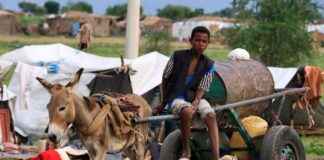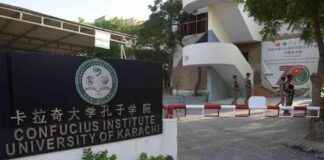The Vanishing Identity of Hong Kong: A Photographer’s Perspective
Hong Kong photographer Billy H.C. Kwok has been witness to the dramatic changes that have unfolded in his city since the handover from the United Kingdom to China in 1997. As a child growing up in post-handover Hong Kong, Kwok saw the gradual erosion of British influence and the increasing control exerted by China. The promise of “One Country, Two Systems” that was supposed to safeguard Hong Kong’s freedoms has been steadily eroded over time, culminating in a sudden and dramatic shift that has left many residents grappling with their city’s changing identity.
Kwok’s response to this transformation was to document the city before it changed beyond recognition under Beijing’s encroachment. As a photojournalist covering Hong Kong’s democratic movements, Kwok has been on the frontlines of pivotal events such as the Umbrella Movement in 2014 and the 2019-2020 pro-democracy protests sparked by a controversial extradition bill. These protests ultimately led to the withdrawal of the bill, but Beijing’s introduction of a National Security Law in June 2020 effectively ended Hong Kong’s autonomy and cracked down on dissent.
Today, Kwok roams the streets of Hong Kong, capturing the quieter changes that are reshaping his city. Through his lens, he sees politics seeping into everyday objects and experiences, reflecting the shifting landscape of Hong Kong’s identity. From playing cards depicting pro-democracy activists as traitors to real estate ads for “emigration sales” covering walls throughout the city, Kwok’s photographs offer a window into the complex interplay between humanity and the political system in Hong Kong.
Exploring Hong Kong’s Shifting Identity
One of the central themes of Kwok’s work is the changing identity of Hong Kong and what it means to be a Hongkonger in the face of political upheaval. In a city as diverse and multifaceted as Hong Kong, defining a singular identity is challenging. Kwok points to the “localist” movement as an example of this complexity, where questions of ancestral heritage and historical roots come into play. The shifting perceptions of Hong Kong’s identity reflect the broader changes that have taken place over the last century, particularly in the wake of political events like the handover in 1997.
Kwok’s own family history adds another layer to his exploration of Hong Kong’s identity. His father’s journey from Guangzhou to Hong Kong amid the upheaval of the Cultural Revolution speaks to the broader narrative of migration and displacement that has shaped Hong Kong’s population. Kwok’s quest to uncover more about his family’s past and their experiences in Hong Kong is a personal reflection of the city’s evolving identity and the impact of political events on individual lives.
Documenting Disappearance and Loss
One of the most poignant stories Kwok has documented is that of Yu Man-hon, an autistic boy who disappeared at the border between Hong Kong and Guangdong in 2000. The mystery surrounding the boy’s disappearance and his mother’s decades-long search for him highlights the challenges faced by Hongkongers navigating the complexities of the Chinese system. The disappearance of Yu Man-hon struck a chord with the people of Hong Kong, raising questions about security, identity, and the relationship between Hong Kong and mainland China.
Through his photographs of daily scenes and objects in Hong Kong, Kwok captures the tangible and intangible losses that accompany the city’s transformation. From real estate ads signaling an exodus of residents to the closure of student unions at universities, Kwok’s images serve as a visual record of the disappearing facets of Hong Kong life. Each photograph tells a story, reflecting the broader narrative of change and upheaval that defines the city’s current reality.
In the face of mounting challenges and restrictions on media freedom, Kwok continues to document Hong Kong’s evolving landscape. Despite the obstacles he faces as a photojournalist in a rapidly changing environment, Kwok remains committed to capturing the essence of Hong Kong through his work. By turning everyday moments into art with a message, Kwok offers a glimpse into the soul of a city in flux, where the past is rapidly fading into memory and the future remains uncertain.
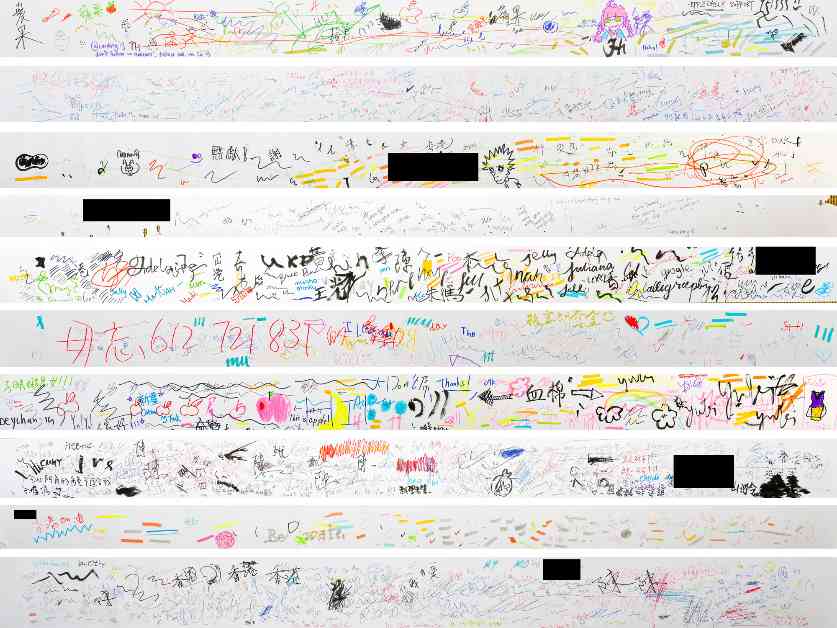
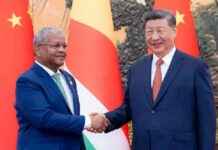


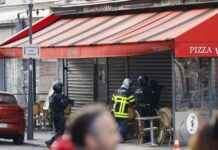




![Indie music fans gather at l’Antipode for [Face B] Kool Things soirée on Saturday night news-15112024-105933](https://shanghainewstv.com/wp-content/uploads/2024/11/news-15112024-105933-218x150.jpg)



